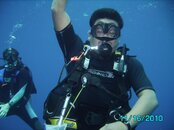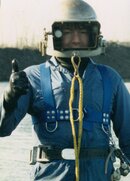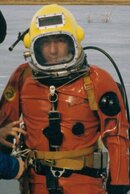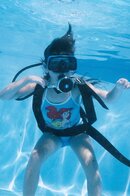I have been exposed to diving from a number of different perspectives (military, commercial and recreational). To me there is a core value that is present in the training of divers in each of these categories that may be shared. It does seem however that some recreational divers/instructors don't acknowledge that anything learned in any other area is related to the other. After all how could a surface-supplied diver have anything in common with a diver wearing scuba? :shocked2:
This has been a source of frustration for me, as I see that having trained military and commercial divers that their skill-sets stand them in good stead in recreational diving. Recreational training on the other hand seems too light to work well in the other categories, other than to serve as an introduction.
My method of training recreational divers requires much more discipline and effort on the part of my students, but it is not well accepted by the recreational community at large. It has been suggested that it serves no purpose other than to make things more difficult than they have to be.
So my question is how do you feel your training as a military or commercial diver is (or is not) beneficial to you when you dive for recreation? Is there anything that you've learned during your training program that you feel should be included into a recreational program? Is there anything you would want your children to know before they were certified to dive without supervision, that they may not receive in their initial training?
This has been a source of frustration for me, as I see that having trained military and commercial divers that their skill-sets stand them in good stead in recreational diving. Recreational training on the other hand seems too light to work well in the other categories, other than to serve as an introduction.
My method of training recreational divers requires much more discipline and effort on the part of my students, but it is not well accepted by the recreational community at large. It has been suggested that it serves no purpose other than to make things more difficult than they have to be.
So my question is how do you feel your training as a military or commercial diver is (or is not) beneficial to you when you dive for recreation? Is there anything that you've learned during your training program that you feel should be included into a recreational program? Is there anything you would want your children to know before they were certified to dive without supervision, that they may not receive in their initial training?








